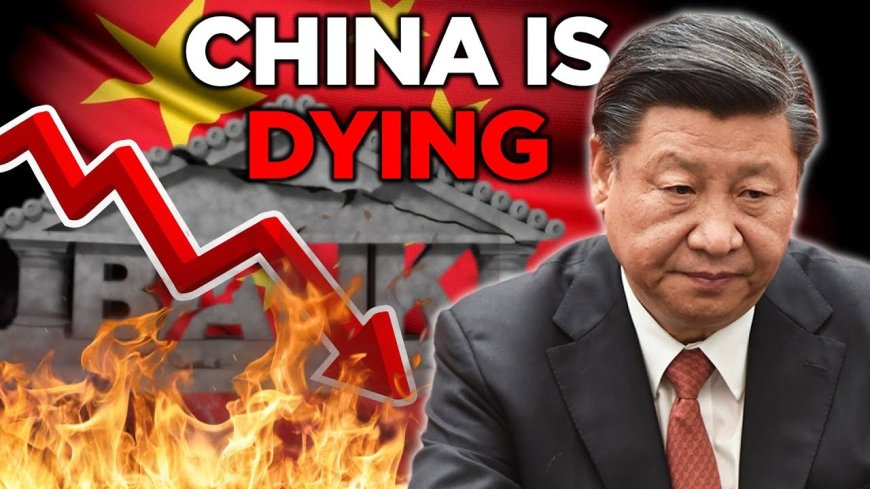China's Economic Challenges Impact Markets: How It Could Affect Your Investments
Explore the implications of China's economic struggles on global markets and investments. Discover how the US-China tensions and economic challenges could influence your portfolio.

China's economic struggles are sending ripples across global markets, including potential repercussions for your investment portfolio.
What's Unfolding:
Recent data from China's National Bureau of Statistics indicates that consumer spending, factory output, and investments in long-term assets, such as property and machinery, have all slowed compared to last year. The country's youth unemployment has reached record highs, leading to the suspension of monthly data releases.
Meanwhile, escalating tensions between the US and China are further complicating the economic landscape. Disputes over trade policies, technology, and geopolitical issues like Russia's actions in Ukraine have strained relations between the world's two largest economies.
President Joe Biden's recent executive order restricting US investments in advanced technology sectors in China has sparked concerns among fund managers about the best strategies for navigating these challenges. Additionally, a Congressional committee is investigating BlackRock and MSCI, two major financial institutions, to determine if they've invested in Chinese companies blacklisted by the US government.
Why It Matters:
China has been a significant driver of global economic growth for the past two decades. Consequently, any slowdown in China's economy could have far-reaching effects, including impacting US equities. This connection stems from both direct sales exposure of US companies in China and China's role as a substantial consumer of commodities.
Even businesses indirectly linked to China could be affected. For instance, ExxonMobil, which may not have extensive dealings with China, could experience lower oil prices if Chinese growth falters. Such dynamics have led to a recent decline in oil prices by approximately 5%.
Impact Areas:
US companies conducting operations in China are particularly vulnerable if the country's economic downturn persists. Notable brands like Apple, Intel, Ford, and Tesla have substantial manufacturing ties to China, while Starbucks and Nike rely on Chinese consumers.
Bank of America identified S&P 500 companies most exposed to China, with Las Vegas Sands topping the list with 68% of sales from China, followed by Qualcomm at 67%. These companies have witnessed declines in their stock prices over recent periods.
Investor Retreat:
Data from PitchBook reveals that US private equity and venture capital investments in China hit an eight-year low in the previous year. Prominent hedge funds like Scion Asset Management, Moore Capital Management, Coatue, D1 Capital, and Tiger Global have also reduced their exposure to Chinese companies in 2023's second quarter.
The ramifications of China's economic challenges extend beyond its borders, casting shadows over global markets and portfolios alike. As the situation evolves, investors remain watchful for potential impacts on their financial strategies.
Also Read: Target's Strong Earnings Propel S&P 500 and Dow; Fed Meeting Minutes Awaited
































































